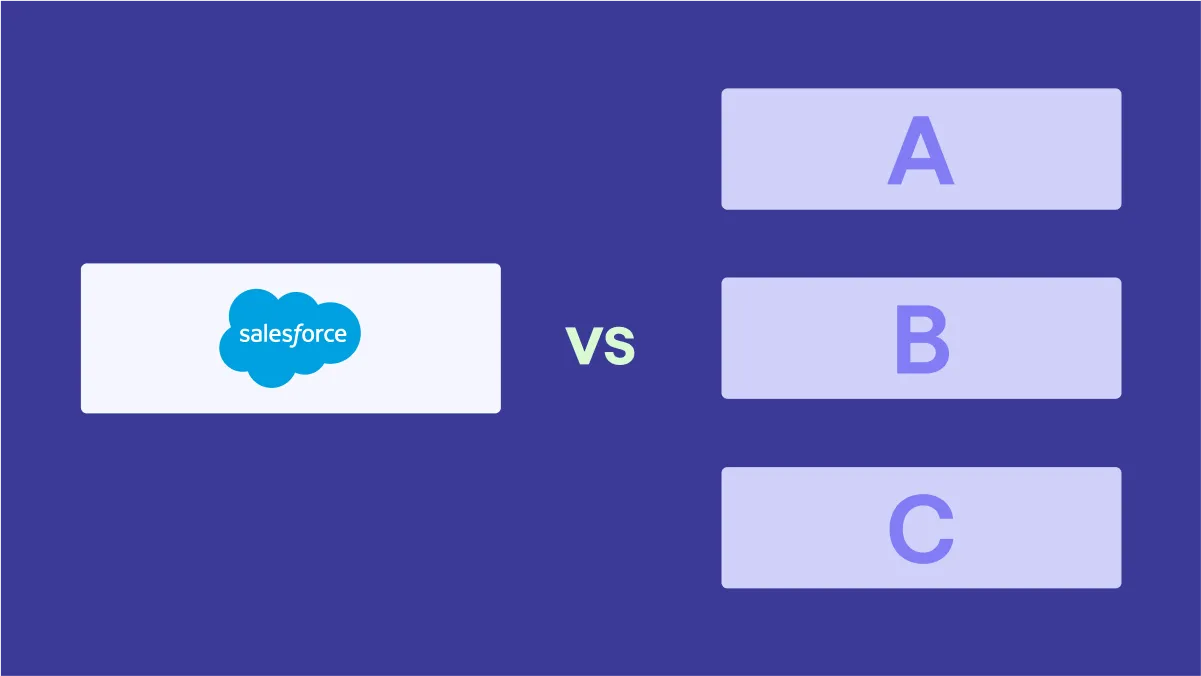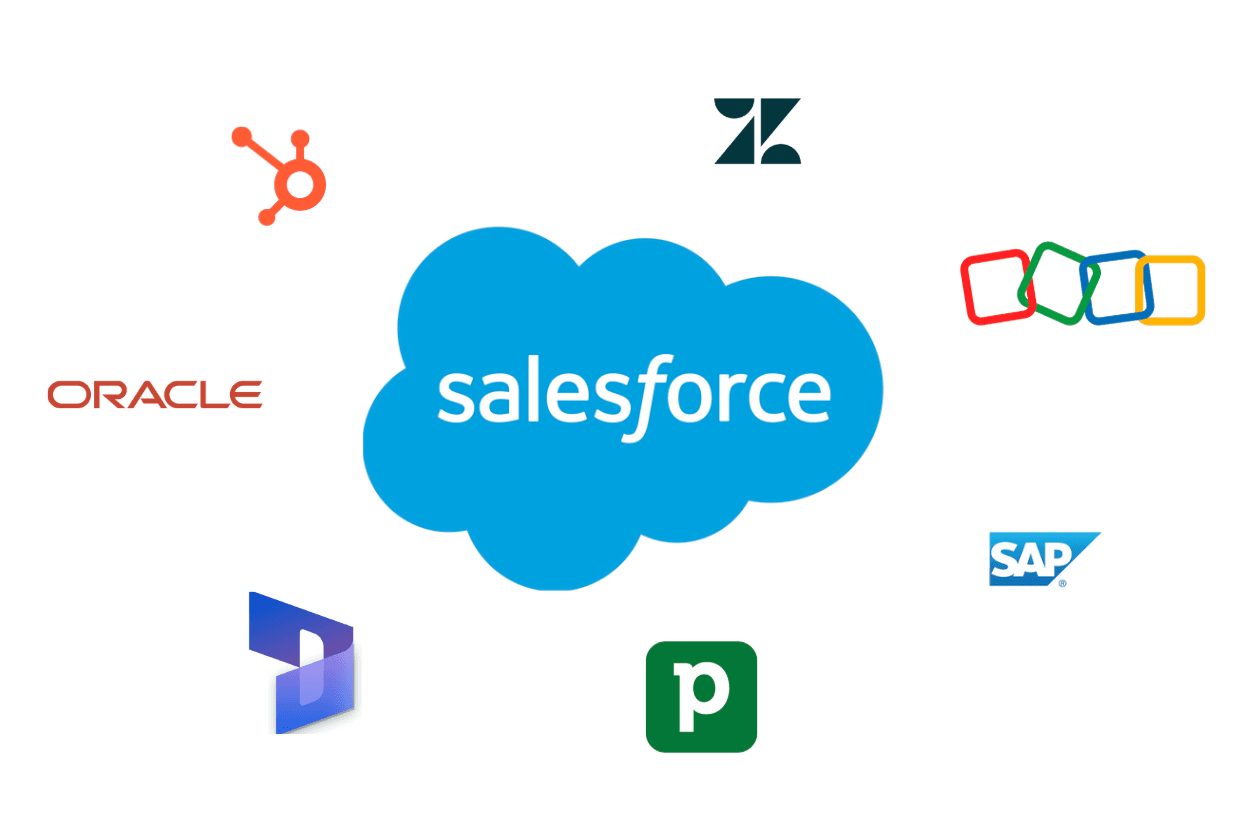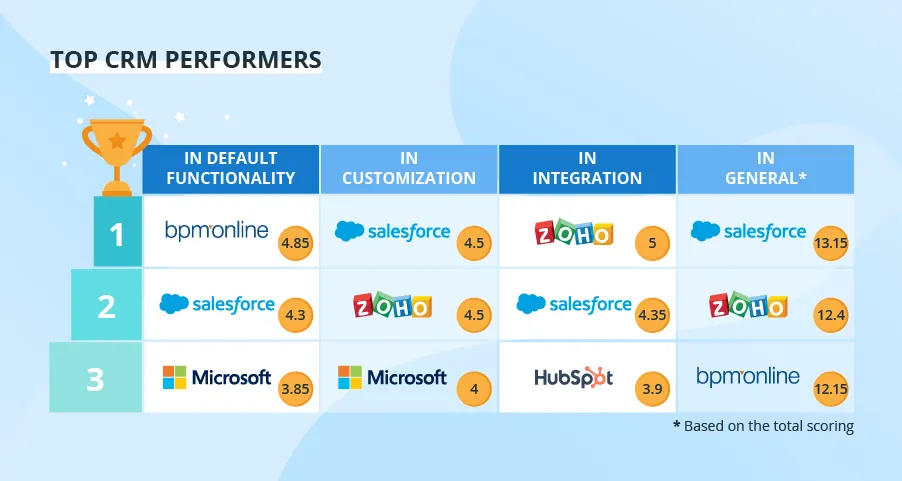Table of Contents
- Introduction to Salesforce and Why You Might Need an Alternative
- Key Criteria for Choosing the Best Alternative to Salesforce
- Top 5 Alternative to Salesforce – In-depth Reviews (2025)
- How to Successfully Transition from Salesforce
- Frequently Asked Questions about Salesforce Alternatives
- Conclusion

Introduction to Salesforce and Why You Might Need an Alternative
Salesforce has long dominated the CRM (Customer Relationship Management) landscape, becoming the default choice for many businesses globally. Due to Salesforce's robust nature, numerous enterprises have relied heavily upon this advanced platform. However, as we enter 2025, an increasing number of users are exploring alternatives to Salesforce, seeking out solutions that better match their evolving business environments and specific CRM needs.
Despite Salesforce's comprehensive functionality, businesses continue approaching me seeking alternative platforms. The most common reasons I hear include:
- Cost structures not aligned with companies’ budgets.
- The complexities of Salesforce’s interface resulting in steep learning curves.
- Unnecessary features inflating monthly subscription prices.
- Need for more agile, user-friendly, and scalable CRM solutions.
In this guide, we'll dive into the most practical alternatives to Salesforce available in 2025, focusing on cost-efficiency, usability, scalability, and the available tools in the market.
Key Criteria for Choosing the Best Alternative to Salesforce
To help you make an informed decision, below are the essential criteria to consider when exploring alternatives that might better suit your needs compared to Salesforce.
Affordability and Cost-efficiency
Budget is typically the number one driver behind the switch. Salesforce can offer amazing tools, but its prices often remain out of reach for small and mid-sized businesses. An ideal alternative would maintain robust features while remaining within budget.
Carefully analyze the following cost-related aspects:
- Monthly subscription fees
- Additional costs (integrations, training, customization)
- Scalability options and incremental pricing based on growth
Ease of Use and Accessibility
CRM platforms should make your sales team's lives easier, not harder. In 2025, user-friendliness is critical—your workforce expects intuitive and hassle-free software experiences.
Look out for:
- Simple and intuitive dashboards
- Easy onboarding and training resources
- Strong mobile applications enabling access from anywhere
- Excellent customer support options
Scalable Features and Flexibility
An effective alternative to Salesforce requires the flexibility to grow with your team. The CRM you select should easily accommodate new users, different business sizes, and shifting workflow requirements.
Ensure your chosen Salesforce alternative provides:
- Flexible subscription plans
- Customization options to adapt to changing workflows
- Openness to integrations (email, social media, marketing automation, etc.)
- Advanced analytics that scale with your business growth

Top 5 Alternative to Salesforce – In-depth Reviews (2025)
HubSpot CRM
HubSpot CRM has impressively risen in recent years as a viable alternative to Salesforce, ideal for small to medium-sized businesses.
Why HubSpot CRM?
An easy-to-use interface aligned perfectly for marketing and sales integration. HubSpot CRM stands out due to the following highlights:
- Free plan with scalable upgrade options
- Seamless integration with HubSpot Marketing Suite
- Transparent pricing structure
- Intuitive interface requiring minimal training
HubSpot Community offers user insights, experiences, and informative discussions—feel free to explore HubSpot CRM community.
Zoho CRM
Zoho CRM is a well-established Salesforce alternative, renowned for its affordability combined with robust customizability.
Should You Consider Zoho CRM?
Absolutely. Zoho CRM brings benefits such as:
- Competitive pricing suitable for companies of all sizes
- Broad functionality with marketing automation, social media integration, and performance analytics
- Highly customizable interface and AI-supported insights (ZIA technology)
Zoho also provides extensive training resources on YouTube; here's a helpful walkthrough to get you started: Zoho CRM tutorial guide.
Pipedrive
Pipedrive has become popular thanks to its sales-oriented approach, making it fantastic for sales-focused teams replacing Salesforce.
Why Choose Pipedrive?
Pipedrive supports sales teams exceptionally well through:
- Visual sales pipeline that's intuitive and straightforward
- Highly scalable pricing structure
- Easy integration with hundreds of third-party tools
- Reliable lead management and reporting options
Freshsales
Freshsales by Freshworks provides strong value as a Salesforce alternative, thanks in part to intuitive lead scoring and efficient workflow automation.
Benefits of Opting for Freshsales
- Powerful AI-driven lead management capabilities
- User-friendly interface and intuitive workflow automation
- Excellent mobile app performance and seamless synchronization
Check out this interesting case study video demonstrating Freshsales’ CRM implementation results: Freshsales Case Study Video.
Monday.com
Monday.com recently expanded its features, transcending its original project management competencies, making it a legitimate alternative to Salesforce.
Why Monday.com?
Monday.com stands out thanks to:
- Advanced workflow customization capabilities
- Unmatched collaborative tools with cross-team flexibility
- Intuitive data visualizations and dashboards for analytics
Monday.com has an active user community and helpful resources here: Monday.com resources.
How to Successfully Transition from Salesforce
Switching from Salesforce doesn't need to create frustration. Follow best practices and sound guidelines to ensure a smooth transition.
Data Migration Best Practices
- Audit your current Salesforce data thoroughly
- Create detailed migration plans (including backups)
- Choose an alternative offering robust import processes
- Always consider running migrations incrementally based on departments or data types first rather than all at once
Training and Team Adaptation
- Develop training sessions and materials highlighting platform advantages
- Have early adopters within your team champion the new CRM
- Share a clear timetable and transition deadlines
- Encourage constant feedback from your team to avoid disruptions
Here's a comprehensive video guide to help your Salesforce migration process: CRM Transition Strategies 2025.

Frequently Asked Questions about Salesforce Alternatives
-
Can I integrate existing tools easily with these Salesforce alternatives? Most alternatives offer straightforward integrations. Always confirm compatibility with your existing tools beforehand to ensure a smooth implementation.
-
What support can I expect from Salesforce alternatives suppliers? Typically, competitors like HubSpot, Zoho, and Monday.com offer strong support via emails, live chats, video tutorials, webinars, community forums, and extensive resources for troubleshooting.
-
Do Salesforce alternatives scale as easily with companies’ growth? Yes, many solutions, particularly HubSpot, Zoho, and Freshsales, offer scalable pricing per user, ensuring your CRM investment aligns with your company's growth.
Conclusion
Choosing an alternative to Salesforce in 2025 requires careful assessment of your organization's specific requirements. Whether affordability, ease-of-use, or adaptability leads your decision, numerous alternatives confidently address these criteria.
CRM solutions like HubSpot, Zoho, Pipedrive, Freshsales, and Monday.com offer robust, affordable, scalable, and user-friendly platforms perfect for teams deciding to move beyond Salesforce. Remember, successful CRM is about fitting your strategic goals perfectly and aligning smoothly with workflows.
The insights and resources provided throughout this article represent actionable starting points. Leverage the links and guidance shared here to choose the best Salesforce alternative tailored precisely for your company’s success in 2025 and beyond.


